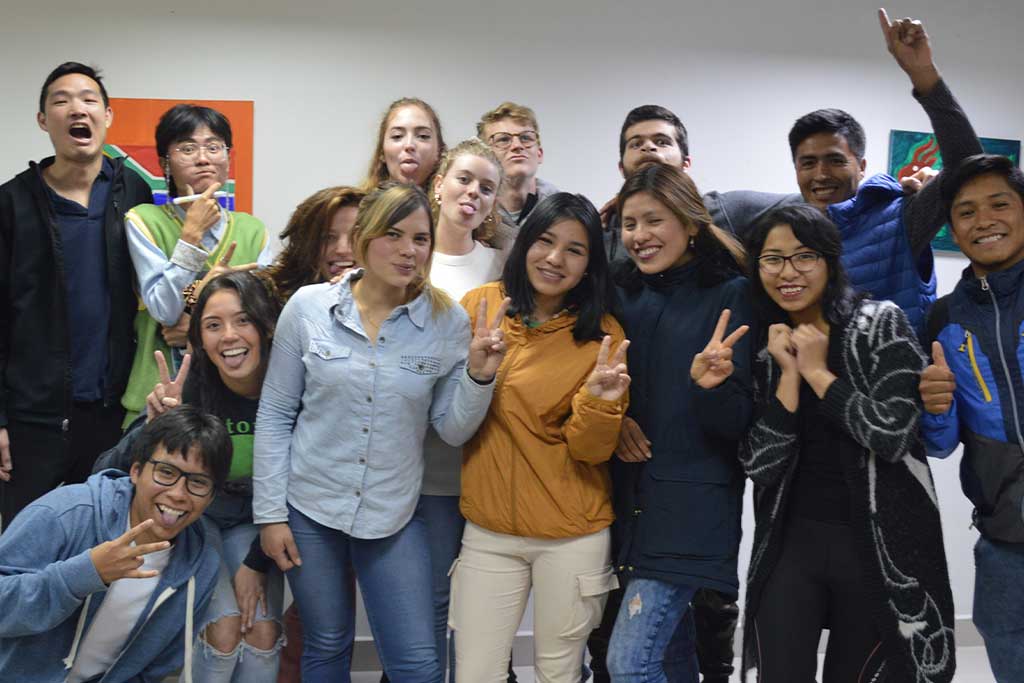Growing up in a multilingual household is finally being recognized for what it really is: a blessing. While only a few generations ago many families immigrating to the United States regarded English as the sole language of opportunity, nowadays, I would kill to be writing 3 or 4 languages on my resume.
My grandmother and her siblings didn’t learn their parents’ Spanish, French or Basque for fear it would affect how they were received at school and in the workplace. The tides have changed, however, and now we know that learning a foreign language is not an inhibitor but an indicator of success.
Despite the personal and professional benefits of language acquisition, however, less than a quarter of Americans are bilingual. And most members of this minority likely grew up speaking more than one language at home. But if this doesn’t sound like you, don’t feel like you’ve missed the boat. Whether you’re 18 or 65, it’s never a bad time to learn a second language.

When you become bilingual (or trilingual or multilingual—polyglots read on), you’re developing a unique skill set that will expand your horizons, both figuratively and literally. Not only will you have more opportunities at your fingertips, you’ll also have a larger portion of the globe to confidently explore.
So don’t waste your time hoping to stumble upon the path to success, pave it for yourself. There are really no downsides to learning a foreign language, you just have to decide if you’re willing to put in the work. Already convinced but hung up on which language to pick? Consider Spanish immersion abroad.
1. Unlock Opportunities
German is the official language of 6 territories. Chinese 5. Russian 4. Spanish 21! And this is excluding the regions of the world where Spanish speakers are a notable minority. So even before we dive into all the perks of learning Spanish, the data speaks for itself. It’s a worthwhile investment!

While teaching and translating are obvious options learning Spanish puts on the table, they’re only the beginning. The growing presence of Spanish in big business and the media makes it a powerful bargaining chip in any interview. And focusing on Spanish doesn’t corner you into a certain profession; it makes you more competitive in whatever field you choose.
Buenos Aires, Mexico City, Madrid—a lot of famous cities with bustling economies are part of the Spanish-speaking world. But even if you don’t see yourself living abroad, don’t write off Spanish just yet. Over 40 million Americans speak Spanish at home. So, whether you work in medicine, social work or customer service, becoming bilingual sets you apart.
2. See the World
Aren’t interested in using Spanish to build your career? You can still explore Spanish-speaking countries on your own time. Travel is another huge incentive for learning a foreign language! The more people you can communicate with, the more accessible and safer our world becomes. So where do you picture yourself on your next holiday?

Trekking to Machu Picchu? Stretched out on the beach in Costa Rica? Hiking a volcano in Guatemala? All these destinations claim Spanish as their mother tongue! When you restrict yourself to English-speaking countries, tours, cruises, or resorts, you’ll likely experience less and pay more. So even as a hobby, becoming conversational in Spanish pays off.
3. Communicate Across Cultures
Also, don’t forget that language learning is in itself a reason to spend time abroad. Educational travel is more meaningful than spring break in Cabo or Ibiza. And whether you’re a complete beginner or pushing towards fluency, learning Spanish will lead to richer cross-cultural experiences. It is a lot harder to open yourself to a new culture without first immersing yourself in its language.

And communities across the globe tend to be more receptive to tourists when they’re making a genuine effort to speak the local language. From Mexico to Chile, you’re guaranteed to get more out of your travels if you’re navigating new cultures in Spanish. A common language also helps you form deeper interpersonal connections. So, fall in love with the language (and maybe a local musician too)!
4. Learn in Context
But to build a community abroad, you’ll have to focus on your language skills first. And though there’s nothing wrong with taking Spanish courses online, to really take the leap from textbook exercises to real-life conversations, you should consider Spanish immersion abroad. Not only will you improve more quickly, but your studies will also have a clear purpose. No more stilted dialogues or dated video clips!

Language acquisition divorced from context is a far cry from what it could be. If you plan to use your Spanish in the real world, doesn’t it make more sense to practice in it too? Maximo Nivel does offer online classes, however, if that’s all your current schedule allows. Then, when you do get to use your Spanish on the ground, you’ll be a step ahead!
5. Give Your Brain a Boost
Finally, if career prospects, travel opportunities and cross-cultural connections don’t have you convinced, learning Spanish also promotes personal growth. Yes, it will help you become a more global citizen and expose you to new ways of thinking. And you will suddenly be able to explore new literary, artistic, and cultural media.

However, when I say Spanish will improve your life, I mean it on a more fundamental level. Language acquisition enhances brain health! So, look at your daily Spanish practice as a cognitive workout that could improve your ability to focus and solve problems over time. So don’t wait—engage your brain, invest in your future, and embrace the world around you. Start studying today!
